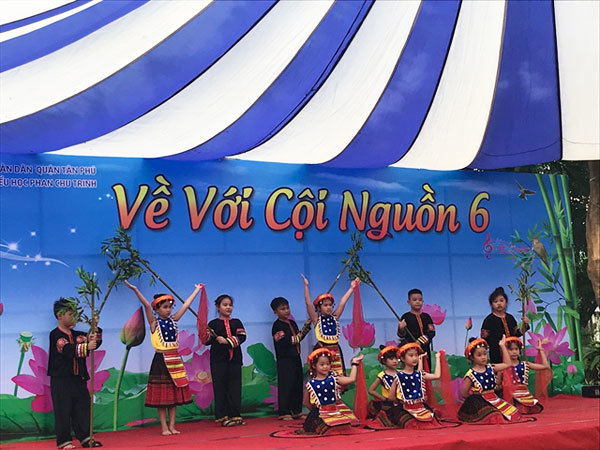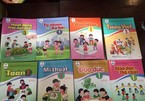required by the Ministry of Education and Training.
 |
|
Students at a primary school in HCM City dance. Many primary schools will teach first-graders six days each week because of a shortage of classrooms.
|
The department is co-operating with the HCM City University of Education and Viettel Group to organise training courses for all managers and first-grade teachers.
For the 2019-20 academic year, the city has 547 principals, 827 vice principals and 5,000 first-graders.
Training for first-grade teachers will be expected to be completed next month. Teachers of the second grade will be trained from this month to June next year. Training courses for the third, fourth and fifth-grade teachers will be carried out afterwards.
Public and private schools have been told to create favourable conditions for their teachers and managers to take part in the courses to meet the requirements for management and teaching under the new training programme.
From the 2020-21 academic year, schools will begin to have more autonomy in making educational plans as well as decentralised decision-making among professional teams who will be able to design curricula based on the ministry's targets.
Last year, 83 per cent of teachers met or exceeded the standards of training according to Education Law, leaving nearly 20 per cent that still need training.
Speaking at a press meeting held on Wednesday in HCM City, Nguyen Van Hieu, the department’s deputy head, said: “Each school has its main first-grade teachers taking part in training courses which the department has organised. These teachers will then teach the other first-grade teachers."
Teachers are instructed in skills to design curricula and methods based on new textbook content, Hieu said.
The Vietnam Education Publishing House Co. Ltd has four sets of textbooks for use at schools in the city in the 2020-21. The company has co-operated with the department to carry out training programmes online and offline.
The city still faces a shortage of teachers for music, fine arts, and foreign languages, mostly English.
The department has worked with universities of education in the city to supplement computer and foreign language teaching. It has proposed allowing graduates who majored in foreign language at universities, and who do not train teachers, to study further training courses so they can teach at schools, Hieu said.
“They could help address the shortage of foreign language teachers,” he added.
New textbooks
Nguyen Thanh Trung, chief of the secretariat at the department, said: “All five sets of textbooks which the ministry approved were sent to teachers and managers of schools to choose during the social distancing period.”
Of the five, the Chân Trời Sáng Tạo textbooks were chosen by 80 per cent of the city’s total schools.
Nearly 1 million copies of the textbooks will be printed, accounting for 81 per cent of the total textbook copies issued in the city, according to Vietnam Education Publishing House Co.Ltd.
The chosen textbooks were written by many authors from the southern region, so words and phrases as well as data are familiar to students.
“Many primary teachers in the city also took part in compiling,” Hieu said.
He said the city’s teachers are using new teaching and testing methodologies that will be compatible with the textbooks.
A representative of Phan Chu Trinh Primary School in Tan Phu District said the school chose this set of textbooks because the content was good and the pictures were lively and attractive.
The Chân Trời Sáng Tạo textbooks also were chosen by schools in 11 provinces such as Ben Tre, Ba Ria-Vung Tau, and An Giang.
Hieu said that prices of the five sets of new textbooks will be about VND300,000 (US$12.9) each, nearly double compared to existing textbooks. The Government will not subsidise the new textbooks, he added.
“The city will spend a part of its budget for schools on buying several sets of textbooks for students with financial difficulties to use if they cannot afford to buy them,” Hieu said.
To meet the demands of the new training programme, Hieu said that ensuring enough classrooms for first-graders is a challenge because schools face a shortage of classrooms. The city’s land fund for building more schools is limited.
The new training programme will require first-graders to study throughout the day. In the morning shift, students will study Vietnamese, maths, and other subjects. In the afternoon shift, they will receiving instruction through activities.
Seventy per cent of students study during the day, he said, adding that the rate in Tan Phu District is only 23 per cent. First-graders there will study six days per week instead of five days if they study throughout the day.
The city has instructed educational sup-departments and schools to review their facilities and teaching aids and devices, Hieu said.
The city has 551 primary schools, including 484 public schools, an increase of four compared to the previous academic year.
There are 3,550 classrooms for the first grade in the 2020-22 schoolyear, with a shortage of 443, according to the department.
Hieu has instructed schools to use classrooms, halls, and schoolyards to organise activities to teach skills to first-graders if they lack classrooms. VNS
Gia Loc

Ho Chi Minh City trains teachers who going to teach new textbooks
In its report to the municipal People’s Committee, the Department of Education and Training said that it is going to train primary teachers who are going to teach new textbooks.

Is Education Ministry allowing HCM City to compile textbooks?
The fact that leaders and officers of the HCM City Education and Training Department receive remuneration for compiling textbooks has caused a stir among the public.
 The HCM City Department of Education and Training and city schools have been training teachers, choosing textbooks, and preparing facilities to carry out a new nationwide training programme in the 2020-21 academic year
The HCM City Department of Education and Training and city schools have been training teachers, choosing textbooks, and preparing facilities to carry out a new nationwide training programme in the 2020-21 academic year